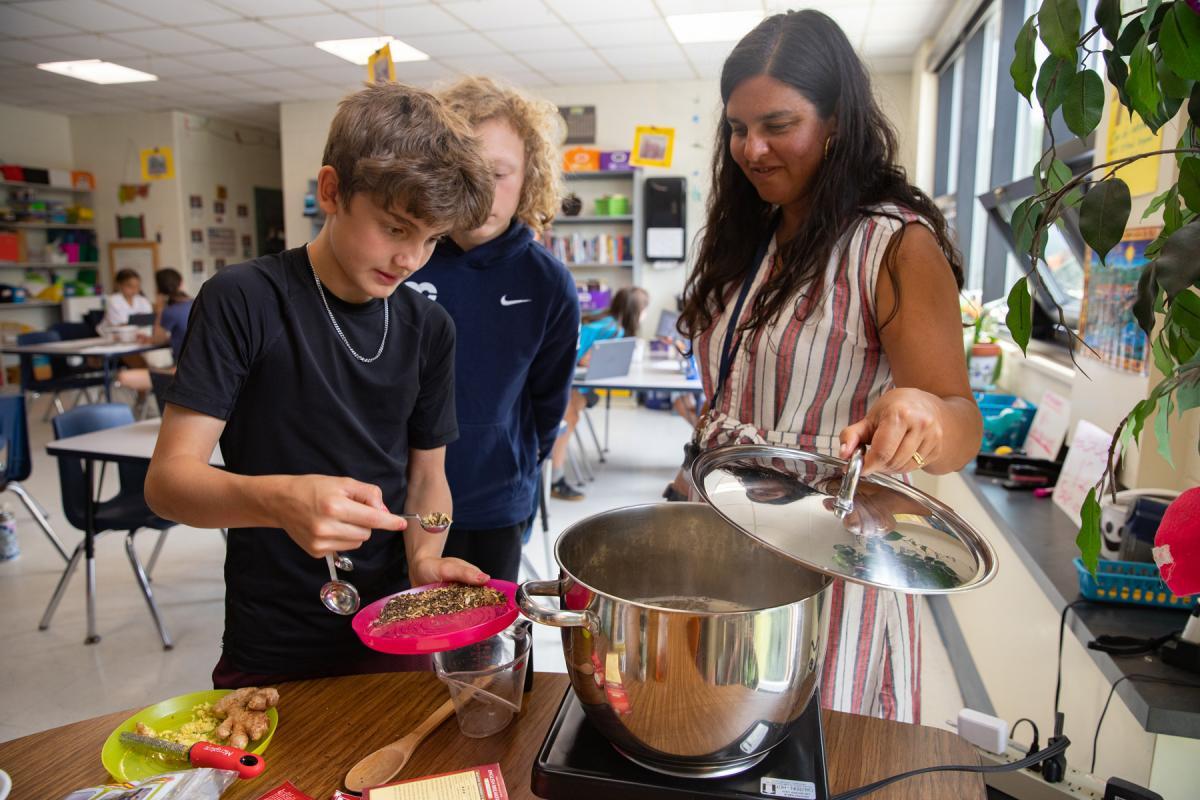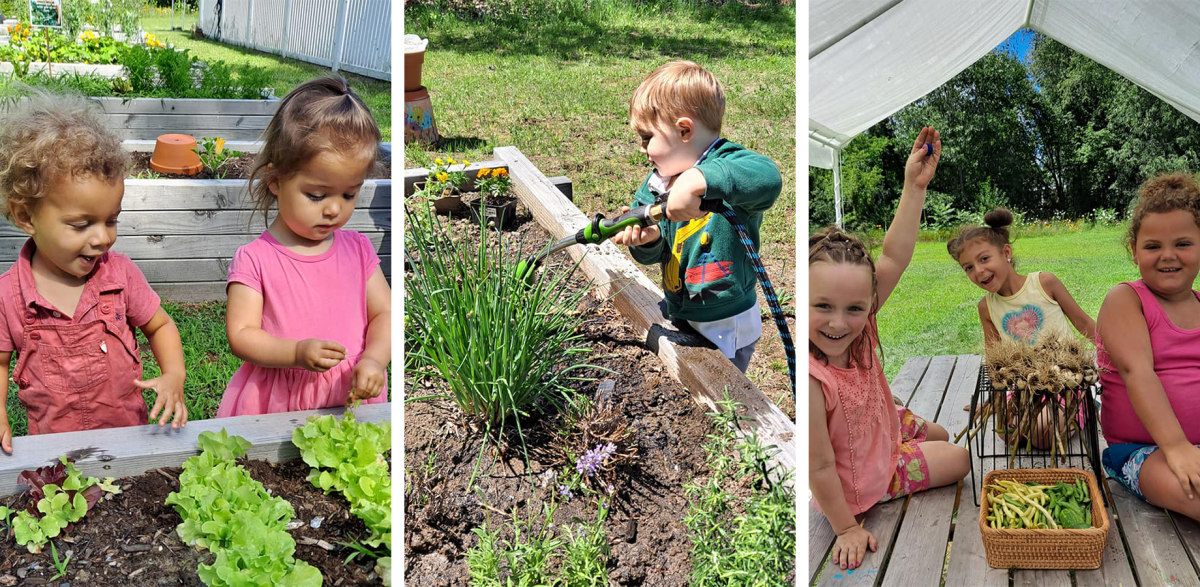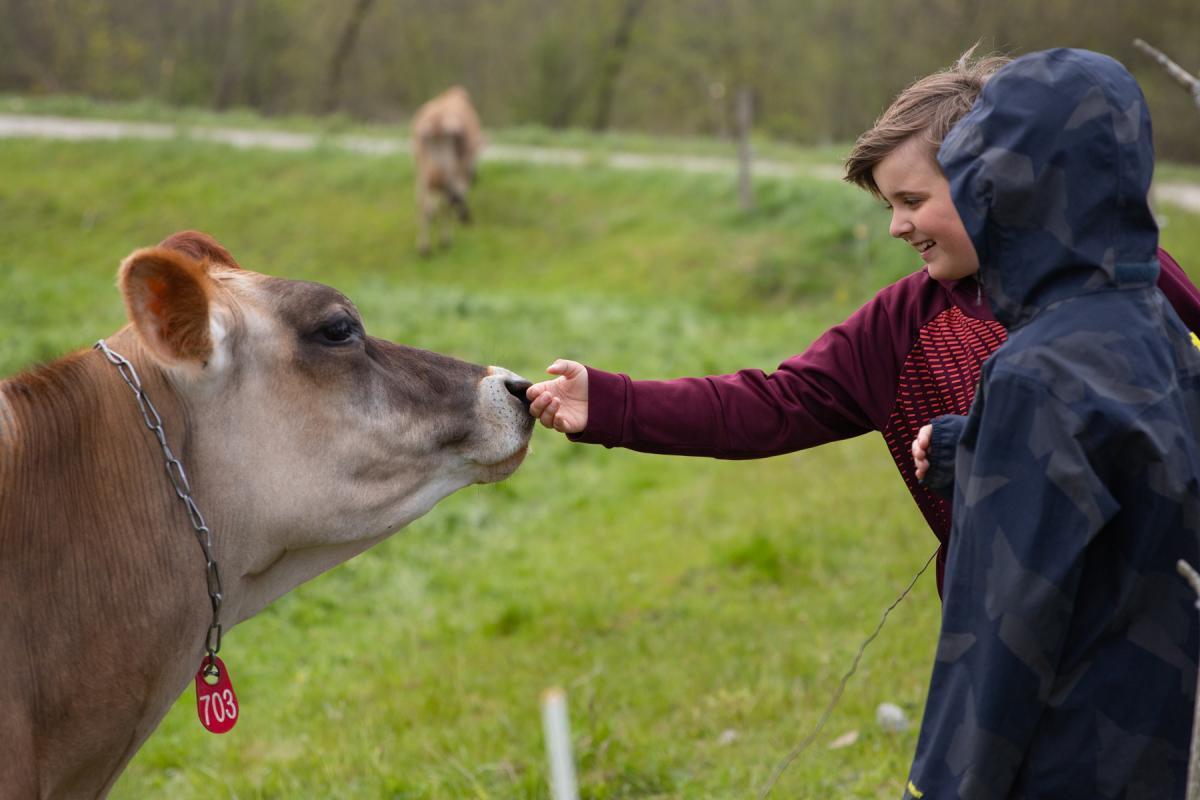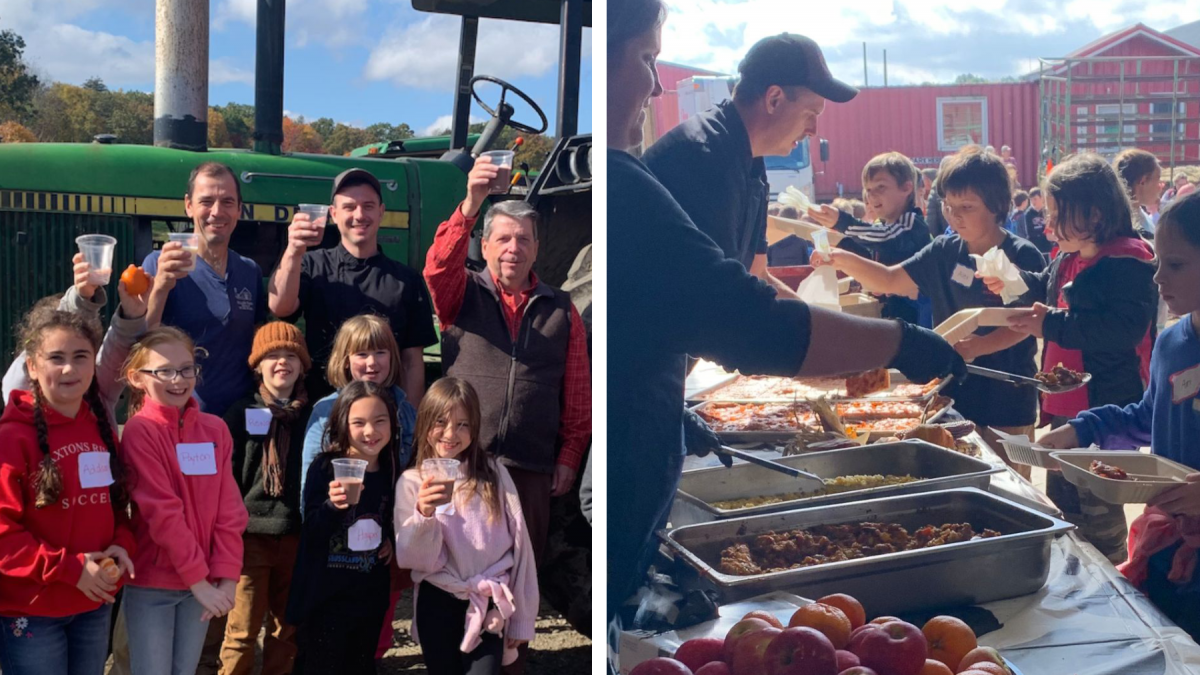2023 Impact by the Numbers
Posted on February 22, 2024
2023 was a big year for us and farm to school in our region. We had some firsts: Universal School Meals was made permanent in Vermont, we launched our first Agricultural Educators Cohort, and states of the inaugural group of the Farm to School Institute Adaptation Program launched their own Institutes.
And, we continued connecting students to their local farmers, supporting teams in our Northeast Farm to School Institute and state grant programs, expanding local purchasing, and advocating for agriculture and nutrition education in Vermont schools.
We’re sharing a look back at 2023 and some of the projects and collaborations that helped to move the farm to school movement forward. Our biggest thank you to all our partners and supporters that make this work possible — here’s to another impactful year!
309 Teachers Impacted

Throughout all of our professional learning in 2023, we worked with 309 teachers across Vermont, supporting their work in helping their students connect the dots of where their food comes from and the impacts of their choices on their bodies, and the community. Among them, 2024 Vermont Teacher of the Year Aziza Malik, who is using storytelling and food stories to build identity and community.
42 Team Members Participated & 15,436 Students Impacted
Our Northeast Farm to School Institute bring teams together to build skills, relationships, and a collaborative action plan for their schools, districts, and early childhood programs. With the support of a coach, teams spend the school year putting their plans into action and strengthening their capacity to impact classrooms, cafeterias, and communities with change that lasts.
"In the school setting, it's really hard to bring stakeholders together and really have the time and space to get in the mindset to do this work. The food and the workshops have been amazing experiences, but that dedicated team time to really dive into this work has been the most valuable piece" –Educator Sam Bromley, Institute participant
16 Farm to School Institutes Launched & Planned
Our Farm to School Institute Adaptation Program supports states in their efforts to adapt, develop, and launch their own Farm to School Institute programs. We focus on the core components that make our Institute model successful, while modifying aspects to fit participants' local context and goals. In 2023, states all across the country are launching, or planning to launch, their own programs to serve their unique communities. Among them is Connecticut, who shared their experience.
15 Farmers Mentored

Our first-ever Agricultural Educators Cohort is a peer-to-peer learning opportunity designed to support farmers who are interested in hosting field trips, and developing relationships with local classrooms. Each participating farmer is matched with a coach in their region to address a range of topics from on-farm visit safety and logistics to developing engaging and relevant educational activities.
“I really enjoy coaching the farmers that I'm partnering with because it's inspiring to see the work they're doing on their own land, but then also finding really interesting and educational ways to bring people onto the farm. And each farmer's doing it differently. It’s really inspiring to see the myriad of ways that they're sharing their way of life with so many Vermont kids and adults.” –Misse Axelrod, Vermont Farm and Forest School, Roxbury, VT
14 Early Childhood Teams Received Coaching

The Farm to Early Childhood movement is growing in Vermont and across the country. We are connecting our earliest learners to where their food comes from through our Northeast Farm to School Institute and as a partner in state grant programs. We offer technical assistance, coaching, and professional learning to early childhood providers engaged in this effort.
Milton Family Community Center (pictured above) is a 2023 VAAFM grantee and is using the opportunity to connect kids to agriculture, nutrition, and their local farmers.
42 CSAs Subsidized for Early Childhood Programs
Vermont's Community Supported Agriculture (CSA) Grant helps early childhood education programs and after school programs access more Vermont-grown foods by subsidizing the cost of a share.
"We've seen this grant jump start snack programs, nutrition education experiences for children and families, on-site garden exploration, and family food backpack programs. This incredible program helps stabilize both our farming and early childhood communities and works toward building more equitable food access and local food systems in Vermont." –Cynthia Greene, Farm to Early Childhood Education Partnership Coordinator, Shelburne Farms
We support the grant program with technical assistance, connecting educators with the tools and resources for applying and using the funds. We have a long partnership with early educator Laura Butler, who is building relationships with her community and farmers.
20 School / Dairy Farm Partnerships Developed

Vermont's Dairy in the Classroom program combines hands-on classroom curriculum with field trips to local dairy farms. Students develop an appreciation for the importance of farms, farmers, and animals in their everyday life. We joined one field trip last spring—Charleston Elementary's visit to Paul-Lin Dairy in Bakersfield.
“So many kids today don’t have a connection to their food. To be able to show first hand where food comes from is a treat for us. We love to share what we do as dairy farmers, and we feel so lucky to be able to give kids the chance to pat a cow.” –Farmer & Owner Linda Stanley, Paul-Lin Dairy
62 School Nutrition Professionals Supported
Vermont's recently created Local Foods Incentive Grant (LFI) provides a direct financial incentive to school districts that meet local purchasing targets in their school meal programs, allowing them to serve more fresh Vermont food on their menus. We offer technical assistance to schools that includes tracking and documenting local purchasing and building relationships with farmers to get nutritious, local foods in more meal programs.
Hear from two of Vermont's local purchasing champions and LFI recipients, Harley Sterling (Windham Southeast SU) and Laura LaVacca (Burlington SU), in our fall webinar, Cafeteria Success Stories from School Nutrition Professionals, above.
2,244 Gallons of Local, Organic Milk Served in WNSU Cafeterias

We provided technical support for the first-of-its-kind Organic Bulk Milk Pilot Project, launched with grant funding from the Northeast Dairy Business Innovation Center. The grant allowed Miller Farm to upgrade equipment for bulk, organic milk sales to Windham Northeast Supervisory Union. The project was celebrated with a school field trip to Miller Farm's dairy. Watch more about the project in WCAX's news segment.
20 Teens Engaged in Statewide Food Systems Youth Summit
Vermont high school students from Woodstock, Harwood Union, Leland & Gray, Montpelier, North Country Union, and Pacem gathered at Knoll Farm for the first annual Youth F.E.A.S.T. Summit (Food Education and Sustainability/Systems Thinking). The students self-organized and created a day of workshops and conversations for themselves and their fellow students passionate about food systems. They taught and attended workshops on microgreens, wildcrafting, advocating in the state house, cooking, and nutrition.
“We often hear about an academic achievement gap in schools, but I think there has been a realization over the last several years that there is actually an engagement gap. We have to stop blaming young people for not being engaged and recognize the strategies that we can use as educators for learning to flourish. Co-creating programming and putting students in the position of decision-maker in their own education is one way toward this deeper learning schools are looking for.” –Director of Professional Learning Jen Cirillo, who supported the students in this event as part of the Educational Value Action Team of the Vermont Farm to School & Early Childhood Network
83,000 Students Impacted by Farm-Fresh School Meals for All Campaign

We worked as part of a broad coalition to advocate for the permanent implementation of Universal School Meals in Vermont. On June 14, 2023, the bill was enacted, making breakfast and lunch permanently available at no charge in Vermont schools.
Combined with the Vermont Farm to School & Early Childhood Grants and the Local Foods Incentive Grants, Universal School Meals ensures every Vermont student has equitable access to nutritious local food and food education. In October, we gathered at Spaulding Education Alternatives School to celebrate.
126 Vermont Farms Fed Vermont Kids

As part of the This Farm Feeds Vermont Kids campaign, 126 farms identified as selling to schools or early childhood programs in Vermont, Vermont’s local farmers, farm workers, and school nutrition professionals are key components of our vibrant food system, and we're seeing more local food in school meal programs every year.
“The ability to grow food that is served in our local school is one of the most fulfilling aspects of my life as a farmer… The pure joy and excitement that I have witnessed as students get their hands in the soil to plant seeds, harvest food that they grew from those seeds, and then to consume it in the cafeteria is so special. For students that don't have the opportunity to grow food at their homes, or have not been exposed to growing food before, this experience is truly life-changing.” –Ashley Fioretti, Owner/Operator of Little Flower Farm